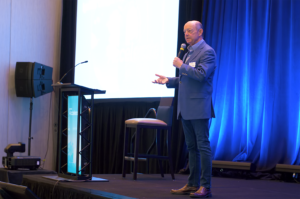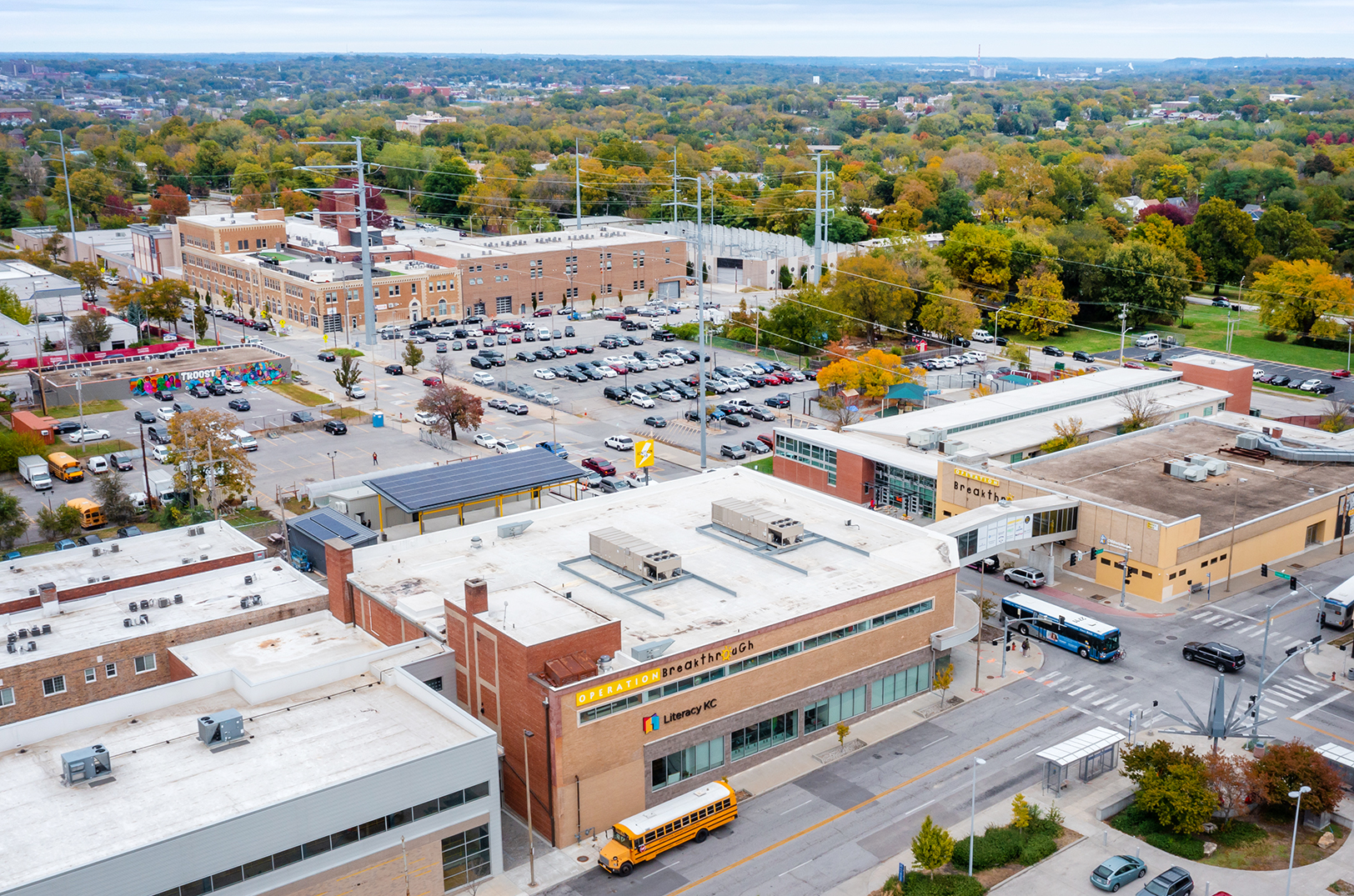The solar canopy at Operation Breakthrough’s high-profile STEM lab and youth coworking space was an opportunity for Black & Veatch to put one of the firm’s core capabilities to use for the community and the climate, said Ilya Tabakh.
“[Our goal was] to support an initiative that supports STEM education, combines sustainability and technology, and put in infrastructure for Operation Breakthrough that frees a lot of resources for them to retarget towards the important work they do,” said Tabakh, entrepreneur in residence at Black & Veatch, a Kansas City-based global infrastructure firm.
Backed by fellow KC climate-focused corporations — Sun Partners International, JE Dunn, MRIGlobal, and RisingSun Solar — the solar installation allows Operation Breakthrough’s Ignition Lab to generate zero-carbon energy while providing a space for students to learn and gain work experience within STEM fields.
Black & Veatch was integral in the funding and design of the solar project.
Click here to read more about how Kansas City companies gave the Travis Kelce-backed Ignition Lab project a boost.
The solar work at the Troost STEM lab represents just one of Black & Veatch’s recent ventures into sustainable infrastructure. The firm has found that critical infrastructure needs to become “more robust, resilient, and sustainable to continue to operate,” Tabakh said.
Its IgniteX growth accelerator program was introduced to move industries closer to that vision, he added.
First launched as a CleanTech accelerator in 2019, it continued in 2020 as a COVID-19 Response accelerator, and in 2022 the growth program became focused on startups “accelerating a net-zero carbon future” as a ClimateTech accelerator.

Steve Edwards, outgoing chairman and CEO of Black & Veatch, speaking at the 2022 IgniteX Climate Tech Showcase
Of 90 applicants to the 2022 program, eight were chosen for the 2022 IgniteX Climate Tech Showcase — based on criteria of innovation, sustainable solutions, decarbonization, resiliency, and reinventing industry. From a startup recycling clothing into raw materials known as Circ to a company called Twelve eliminating emissions by transforming CO2 into critical chemicals, materials, and fuels, the cohort showcased ideas for reducing carbon emissions through tech.
“There was a pretty strong focus on ‘How do we partner with other folks in the innovation ecosystem and work with other emerging companies and technology players to continue to drive innovation?’ As some of these cool things are being invented out of research, out of the science lab, our thinking is on ‘What do we actually have to do to bring them into the grid, bring them into the world?’” said Tabakh.
“We find the best and smartest folks working on these issues and we combine them with the deep expertise we have internally until both sides end up running faster and you come up with more dynamic and creative solutions,” he continued.
While the 2022 IgniteX program recently wrapped, Black & Veatch continues to work in line with the goals of the program, Tabakh said.
The firm began releasing sustainability reports in 2020, formalizing Black & Veatch’s approach to leadership and responsibility related to deploying infrastructure that mitigates and adapts to climate change.
In its 2022 report, Black & Veatch commits to “reduce Scope 1 and 2 emissions by 40 percent and overall GHG emissions (Scope 1, Scope 2, and Scope 3 business travel and teleworking) by 20 percent from a 2019 baseline by 2023 and be net zero for overall emissions by 2025.”
As Kansas City officials work on an updated Climate Protection & Resiliency Plan for the city, Black & Veatch provides an example for how corporations and startups can begin to navigate sustainable development and ClimateTeach in a world increasingly focused on sustainability.
“What’s exciting is that regions and cities are really thinking about ‘What does the next generation of their infrastructure look like?’ and thinking about many of the stakeholders involved in those conversations,” said Tabakh. “On the regional plan [for Kansas City], there are quite a lot of conversations taking place.”







































